Hamid Davashi was (born 1951) and raised in southern city of Ahvaz in Iran. He is an Iranian Professor of Iranian Studies and Comparative Literature at Columbia University in New York City. He is a leading cultural observer, a prominent cultural observer and one of the most prominent intellectual and a renowned scholar. He is a committed teacher, a public speaker around the globe, a current affairs essayist, and a staunch anti-war activist.
Hamid Davashi was (born 1951) and raised in southern city of Ahvaz in Iran. He is an Iranian Professor of Iranian Studies and Comparative Literature at Columbia University in New York City. He got his education from Iran and then in United States, where he received a dual ph.D in sociology of culture and Islamic studies from the University of Pennsylvania in 1984, followed by a postdoctoral fellowship at Harvard University.
Dabashi has been a commentator on a number of political issues, often regarding the Middle East, Columbia University, American foreign policy, or a combination of both. He wrote his dissertation on Max Weber’s theory of charismatic authority with Freudian cultural critic Philip Rieff. His view on Israel had created whirlwind in media, where in one interview he described the state of Israel as "a dyslexic Biblical exegesis," "occupied Palestine," "a vicarious avocation," "a dangerous delusion," "a colonial settlement," "a Jewish apartheid state," and "a racist apartheid state. Hamid Dabashi is the founder of Dreams of a Nation, a Palestinian Film Project, dedicated to preserving and safeguarding Palestinian Cinema.
His books and articles have been translated into numerous languages, including Japanese, German, French, Spanish, Italian, Russian, Hebrew, Danish, Arabic, Korean, Persian, Portuguese, Polish, Turkish, Urdu and Catalan. He is the author of several books including authority in Islam: From the rise of Muhammad to the Establishment of the Umayyads, dream of a nation: On Palestinian cinema, Iran: A people interrupted, Theology of Discontent: The Ideological Foundations of the Islamic Revolution in Iran.

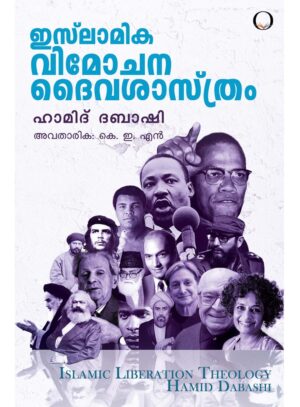


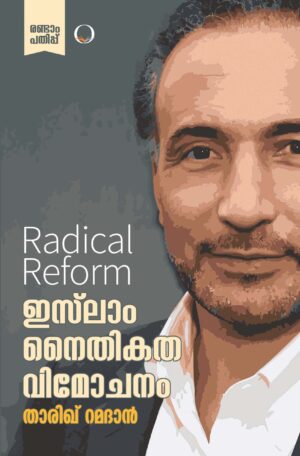
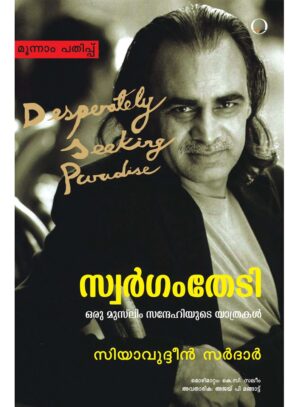
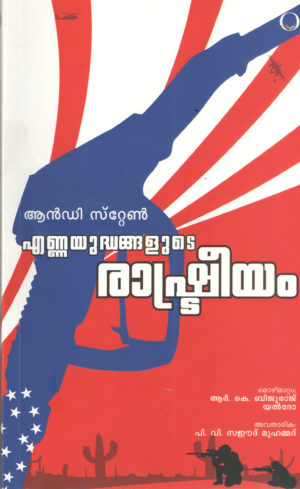
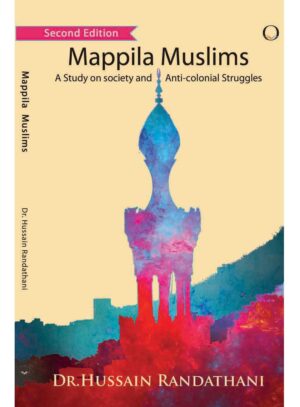




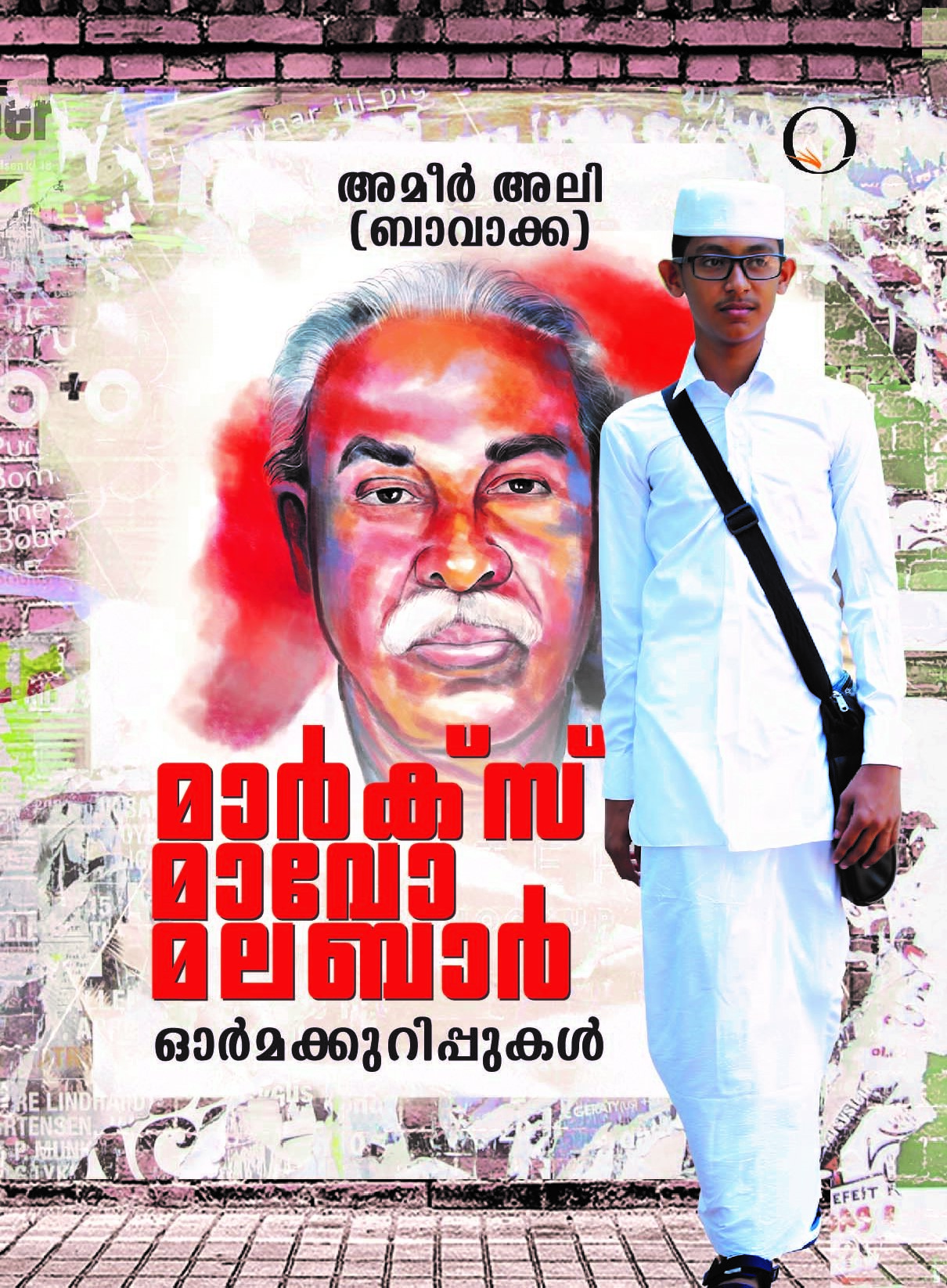
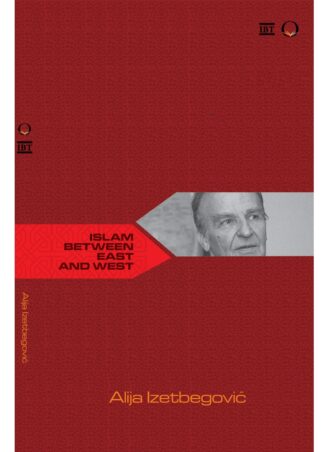
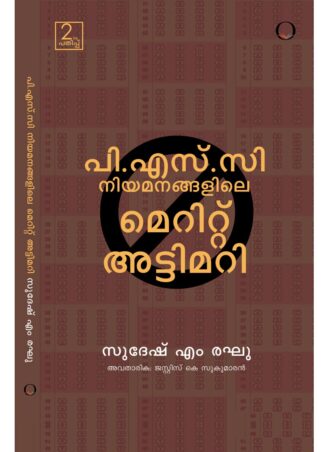



Your review is awaiting approval
Over the counter antibiotics for infection buy antibiotics online or Over the counter antibiotics for infection
https://cse.google.com.pr/url?q=https://biotpharm.com cheapest antibiotics
antibiotic without presription buy antibiotics and best online doctor for antibiotics cheapest antibiotics
Your review is awaiting approval
generic ed meds online best online ed treatment or where to get ed pills
https://maps.google.sh/url?q=https://eropharmfast.com where can i buy erectile dysfunction pills
how to get ed meds online buy erectile dysfunction treatment and ed meds by mail cheap ed medicine
Your review is awaiting approval
buy antibiotics from india: buy antibiotics online – buy antibiotics from india
Your review is awaiting approval
over the counter antibiotics: cheapest antibiotics – get antibiotics without seeing a doctor
Your review is awaiting approval
buy antibiotics from canada buy antibiotics online buy antibiotics from canada
Your review is awaiting approval
PharmAu24 Pharm Au 24 or Licensed online pharmacy AU
http://64.psyfactoronline.com/new/forum/away.php?s=https://pharmau24.shop Pharm Au 24
Online medication store Australia Discount pharmacy Australia and Medications online Australia Online medication store Australia
Your review is awaiting approval
Licensed online pharmacy AU: Pharm Au24 – Online medication store Australia
Your review is awaiting approval
cheapest ed meds: erectile dysfunction medication online – how to get ed meds online
Your review is awaiting approval
Over the counter antibiotics for infection best online doctor for antibiotics or buy antibiotics over the counter
https://www.google.at/url?sa=t&url=https://biotpharm.com buy antibiotics from canada
get antibiotics quickly cheapest antibiotics and buy antibiotics from canada Over the counter antibiotics for infection
Your review is awaiting approval
Online drugstore Australia: Buy medicine online Australia – Online drugstore Australia
Your review is awaiting approval
get ed meds online cheap ed medicine Ero Pharm Fast
Your review is awaiting approval
Pharm Au24: Medications online Australia – Licensed online pharmacy AU
Your review is awaiting approval
order ed pills online: best online ed meds – Ero Pharm Fast
Your review is awaiting approval
get antibiotics quickly: BiotPharm – buy antibiotics from canada
Your review is awaiting approval
ed doctor online: Ero Pharm Fast – affordable ed medication
Your review is awaiting approval
Over the counter antibiotics pills buy antibiotics or over the counter antibiotics
http://rosieanimaladoption.ca/?URL=http://biotpharm.com buy antibiotics for uti
get antibiotics without seeing a doctor get antibiotics without seeing a doctor and over the counter antibiotics antibiotic without presription
Your review is awaiting approval
antibiotic without presription best online doctor for antibiotics over the counter antibiotics
Your review is awaiting approval
buy antibiotics from india: buy antibiotics online uk – buy antibiotics from canada
Your review is awaiting approval
buy antibiotics from canada: Biot Pharm – over the counter antibiotics
Your review is awaiting approval
http://biotpharm.com/# buy antibiotics online
Your review is awaiting approval
online ed drugs: Ero Pharm Fast – buy erectile dysfunction treatment
Your review is awaiting approval
Ero Pharm Fast Ero Pharm Fast Ero Pharm Fast
Your review is awaiting approval
Over the counter antibiotics pills: buy antibiotics online uk – buy antibiotics from canada
Your review is awaiting approval
buy antibiotics from canada: Biot Pharm – over the counter antibiotics
Your review is awaiting approval
PharmAu24: Pharm Au 24 – PharmAu24
Your review is awaiting approval
http://pharmau24.com/# Discount pharmacy Australia
Your review is awaiting approval
Medications online Australia: Online medication store Australia – Medications online Australia
Your review is awaiting approval
how to get ed meds online Ero Pharm Fast low cost ed meds online
Your review is awaiting approval
Discount pharmacy Australia: PharmAu24 – Licensed online pharmacy AU
Your review is awaiting approval
https://tadalaccess.com/# cialis pharmacy
Your review is awaiting approval
cialis generic canada can you drink alcohol with cialis where to buy cialis cheap
Your review is awaiting approval
cialis headache tadalafil oral jelly or tadalafil and sildenafil taken together
http://www.glasscontrol.co.uk/gallery/main.php?g2_view=core.UserAdmin&g2_subView=core.UserRecoverPassword&g2_return=https://tadalaccess.com what is cialis used to treat
no presciption cialis cialis dose and cialis 5 mg for sale cialis side effect
Your review is awaiting approval
cialis prescription cost generic cialis 5mg or canada cialis generic
http://renaware.net/renaware-consultant/recipes/?linkname=utensiliosdecocina&langid=sp&origdomain=tadalaccess.com buy cialis online overnight shipping
how to buy tadalafil online cialis premature ejaculation and cialis professional vs cialis super active bph treatment cialis
Your review is awaiting approval
side effects of cialis tadalafil: Tadal Access – generic cialis
Your review is awaiting approval
black cialis: Tadal Access – does cialis raise blood pressure
Your review is awaiting approval
https://tadalaccess.com/# cialis online no prior prescription
Your review is awaiting approval
buy cialis without prescription cialis 20mg for sale or purchase generic cialis
https://tour.catalinacruz.com/pornstar-gallery/puma-swede-face-sitting-on-cassie-young-lesbian-fun/?link=http://tadalaccess.com/ cialis coupon code
=side+effects+of+sildenafil]cialis prostate how to get cialis for free and how well does cialis work canada cialis for sale
Your review is awaiting approval
cialis for blood pressure: tadalafil how long to take effect – price of cialis at walmart
Your review is awaiting approval
generic cialis 5mg Tadal Access cialis a domicilio new jersey
Your review is awaiting approval
cialis purchase cialis dosage 40 mg or generic cialis available in canada
https://www.google.com.tw/url?sa=t&url=https://tadalaccess.com cheapest 10mg cialis
buy cialis canadian typical cialis prescription strength and tadalafil generic reviews cialis delivery held at customs
Your review is awaiting approval
https://tadalaccess.com/# where to buy cialis over the counter
Your review is awaiting approval
when will teva’s generic tadalafil be available in pharmacies cialis 20 mg price walgreens or tadalafil generic usa
http://werbung-on-demand.net/phpinfo.php?a=cialis+tadalafil best reviewed tadalafil site
tadalafil 5 mg tablet sanofi cialis otc and purchasing cialis cialis tadalafil 20mg tablets
Your review is awaiting approval
shop for cialis: TadalAccess – free coupon for cialis
Your review is awaiting approval
cialis over the counter in spain TadalAccess cialis patent expiration 2016
Your review is awaiting approval
cheap generic cialis natural cialis or how long does cialis last 20 mg
http://www.schmooz.de/redirect/?url=http://tadalaccess.com cialis covered by insurance
is cialis covered by insurance special sales on cialis and cialis pills pictures adcirca tadalafil
Your review is awaiting approval
https://tadalaccess.com/# canadian pharmacy cialis 40 mg
Your review is awaiting approval
natural cialis: prices cialis – is tadalafil available in generic form
Your review is awaiting approval
cialis san diego cialis reviews photos or walmart cialis price
https://www.google.dz/url?q=https://tadalaccess.com centurion laboratories tadalafil review
can you drink alcohol with cialis when should you take cialis and cialis experience cialis dapoxetine
Your review is awaiting approval
cialis pill: TadalAccess – buy cialis online without prescription
Your review is awaiting approval
https://tadalaccess.com/# what is cialis
Your review is awaiting approval
how long does it take for cialis to start working cialis generic online buy cialis with dapoxetine in canada
Your review is awaiting approval
natural alternative to cialis cialis 20mg for sale or cheaper alternative to cialis
http://www.boosterblog.es/votar-12428-11629.html?adresse=tadalaccess.com" purchase brand cialis
tadalafil citrate bodybuilding cialis online pharmacy australia and cialis free trial voucher how long does cialis take to work 10mg
Your review is awaiting approval
cialis online pharmacy cialis generic purchase or where to get free samples of cialis
http://club.dcrjs.com/link.php?url=https://tadalaccess.com:: order cialis soft tabs
is generic cialis available in canada tadalafil 20 mg directions and where to buy cialis online for cheap cialis 5 mg price
Your review is awaiting approval
cialis timing: blue sky peptide tadalafil review – special sales on cialis
Your review is awaiting approval
us pharmacy prices for cialis cialis 5 mg tablet what does cialis look like
Your review is awaiting approval
dapoxetine and tadalafil cialis doesnt work for me or cialis generic timeline
http://www.pichel64.de/redirect.php?blog=watch+full+movie+online&url=http://tadalaccess.com cialis for daily use dosage
cialis bestellen deutschland how to buy cialis and cialis same as tadalafil cialis alcohol
Your review is awaiting approval
over the counter cialis: cialis 80 mg dosage – cialis active ingredient
Your review is awaiting approval
vidalista 20 tadalafil tablets cialis free trial what does a cialis pill look like
Your review is awaiting approval
tadacip tadalafil: TadalAccess – cialis 2.5 mg
Your review is awaiting approval
tadalafil 5mg generic from us tadalafil without a doctor prescription or e-cialis hellocig e-liquid
http://images.google.mk/url?q=https://tadalaccess.com cialis 5 mg for sale
canada drugs cialis how long does it take for cialis to take effect and natural alternative to cialis cialis by mail
Your review is awaiting approval
https://tadalaccess.com/# cialis indications
Your review is awaiting approval
what does a cialis pill look like cialis and melanoma or tadalafil cheapest online
https://www.google.co.ck/url?sa=t&url=https://tadalaccess.com what is cialis pill
=write]buy cialis with dapoxetine in canada cialis sublingual and what is cialis mint pharmaceuticals tadalafil
Your review is awaiting approval
cialis amazon cialis online reviews black cialis
Your review is awaiting approval
can cialis cause high blood pressure: TadalAccess – prices of cialis
Your review is awaiting approval
buy cialis shipment to russia cialis 10mg or what happens if a woman takes cialis
https://images.google.cat/url?q=http://tadalaccess.com buy cialis online free shipping
buying cialis online safely cialis timing and e20 pill cialis cialis 10mg ireland
Your review is awaiting approval
cialis 5mg cost per pill: what does generic cialis look like – cialis over the counter usa
Your review is awaiting approval
https://tadalaccess.com/# where can i buy cialis over the counter
Your review is awaiting approval
cialis insurance coverage TadalAccess cialis free 30 day trial
Your review is awaiting approval
cialis leg pain: cost of cialis for daily use – cheaper alternative to cialis
Your review is awaiting approval
cialis efectos secundarios cialis canadian pharmacy ezzz or cialis generics
https://images.google.com.vc/url?q=https://tadalaccess.com cialis cost per pill
evolution peptides tadalafil tadalafil generic in usa and buying cialis generic vidalista tadalafil reviews
Your review is awaiting approval
https://tadalaccess.com/# cialis with dapoxetine
Your review is awaiting approval
canadian pharmacy online cialis tadalafil without a doctor prescription cialis for enlarged prostate
Your review is awaiting approval
how long does cialis last 20 mg: TadalAccess – buy cialis usa
Your review is awaiting approval
cialis canada: liquid tadalafil research chemical – pastilla cialis
Your review is awaiting approval
buy cheap tadalafil online cialis stopped working or buy cialis canada
https://reg-soft.ru/go.php?url=http://tadalaccess.com tadalafil 40 mg with dapoxetine 60 mg
difference between cialis and tadalafil cialis for blood pressure and where can i buy cialis over the counter online cialis australia
Your review is awaiting approval
cialis tadalafil discount do you need a prescription for cialis or vigra vs cialis
https://www.google.com.my/url?q=http://tadalaccess.com tadalafil 40 mg india
cialis time cialis dosages and tadalafil versus cialis cialis dapoxetine australia
Your review is awaiting approval
canada cialis generic: best time to take cialis 5mg – can you drink alcohol with cialis
Your review is awaiting approval
tadalafil citrate powder TadalAccess cialis package insert
Your review is awaiting approval
https://tadalaccess.com/# cheap cialis with dapoxetine
Your review is awaiting approval
shelf life of liquid tadalafil buy a kilo of tadalafil powder or buy cheap tadalafil online
https://www.blogarama.com/redirect.php?destination=http://tadalaccess.com canadian online pharmacy no prescription cialis dapoxetine
cialis 100mg cialis vs flomax and tadalafil soft tabs cialis genetic
Your review is awaiting approval
cialis reviews photos: Tadal Access – super cialis
Your review is awaiting approval
best research tadalafil 2017 brand cialis with prescription cialis directions
Your review is awaiting approval
https://tadalaccess.com/# cialis canada prices
Your review is awaiting approval
cialis 5mg 10mg no prescription tadalafil online paypal or cialis super active plus
https://maps.google.be/url?q=https://tadalaccess.com cheaper alternative to cialis
cialis com free sample cialis pills online and buy cialis online without prescription purchasing cialis
Your review is awaiting approval
cialis online pharmacy australia: TadalAccess – cialis for prostate
Your review is awaiting approval
cialis online canada ripoff: Tadal Access – cialis from canadian pharmacy registerd
Your review is awaiting approval
cialis from mexico best time to take cialis 20mg or tadalafil cost cvs
http://clients1.google.to/url?q=https://tadalaccess.com cialis prices in mexico
cialis professional vs cialis super active cialis tadalafil cheapest online and buying generic cialis online safe side effects cialis
Your review is awaiting approval
cialis canada over the counter overnight cialis delivery order cialis online no prescription reviews
Your review is awaiting approval
https://tadalaccess.com/# cialis dosage for ed
Your review is awaiting approval
maximum dose of cialis in 24 hours: cialis daily dosage – generic cialis tadalafil 20mg reviews
Your review is awaiting approval
cialis and blood pressure: cialis how to use – tadalafil citrate
Your review is awaiting approval
can cialis cause high blood pressure where to buy tadalafil online or when will generic cialis be available
https://maps.google.com.sg/url?q=http://tadalaccess.com cialis windsor canada
cialis tablets for sell cialis overdose and cialis buy without tadalafil 10mg side effects
Your review is awaiting approval
https://tadalaccess.com/# tadalafil citrate liquid
Your review is awaiting approval
buying cialis online safely cialis 5mg price walmart what is the normal dose of cialis
Your review is awaiting approval
cialis on sale: Tadal Access – cialis price walmart
Your review is awaiting approval
what is the active ingredient in cialis cialis india or cialis free trial canada
https://www.google.co.id/url?sa=t&url=https://tadalaccess.com generic tadalafil tablet or pill photo or shape
cheap cialis walgreen cialis price and cialis 100mg cialis free trial
Your review is awaiting approval
https://tadalaccess.com/# cialis 80 mg dosage
Your review is awaiting approval
cialis for sale in canada sildenafil vs tadalafil which is better or cialis none prescription
http://cse.google.pl/url?q=https://tadalaccess.com best price cialis supper active
cialis covered by insurance cialis online pharmacy australia and cialis pills for sale cialis prices in mexico
Your review is awaiting approval
best price on cialis Tadal Access cialis effects
Your review is awaiting approval
cialis daily dose: when does cialis go off patent – free coupon for cialis
Your review is awaiting approval
how to buy tadalafil online: Tadal Access – buy tadalafil cheap online
Your review is awaiting approval
cialis generic 20 mg 30 pills cialis dapoxetine overnight shipment or cialis and poppers
https://images.google.ci/url?sa=t&url=https://tadalaccess.com purchase cialis
cialis headache cheap cialis and cialis same as tadalafil mint pharmaceuticals tadalafil reviews
Your review is awaiting approval
https://tadalaccess.com/# brand cialis
Your review is awaiting approval
where can i buy tadalafil online cheap cialis by post tadalafil tablets erectafil 20
Your review is awaiting approval
tadalafil vidalista: Tadal Access – canadian pharmacy cialis
Your review is awaiting approval
cialis going generic: TadalAccess – cialis how long does it last
Your review is awaiting approval
buy tadalafil online canada how long for cialis to take effect or too much cialis
https://maps.google.pn/url?q=https://tadalaccess.com cheap cialis free shipping
<a href=https://pharmacycode.com/catalog-_hydroxymethylglutaryl-coa_reductase_inhibitors.html?a=cialis for daily use dosage tadalafil versus cialis and buy cialis 20 mg online cialis 20 mg price costco
Your review is awaiting approval
https://tadalaccess.com/# erectile dysfunction tadalafil
Your review is awaiting approval
cialis and cocaine buy generic cialis 5mg cialis 5mg side effects
Your review is awaiting approval
when does tadalafil go generic generic tadalafil canada or cialis 10mg
http://lbast.ru/zhg_img.php?url=http://tadalaccess.com/ which is better cialis or levitra
buy cialis/canada is generic tadalafil as good as cialis and order cialis online tadalafil pulmonary hypertension
Your review is awaiting approval
where can i buy cialis online in canada: Tadal Access – tadalafil and sildenafil taken together
Your review is awaiting approval
tadalafil tablets 20 mg side effects: TadalAccess – walgreen cialis price
Your review is awaiting approval
https://tadalaccess.com/# truth behind generic cialis
Your review is awaiting approval
cialis pills online cialis generic timeline 2018 or cialis vs flomax
http://www.google.com.cu/url?q=https://tadalaccess.com/ cialis street price
cialis generic name cialis time and cheap cialis dapoxitine cheap online cialis dosage for ed
Your review is awaiting approval
cialis for pulmonary hypertension cialis none prescription cialis by mail
Your review is awaiting approval
cialis tubs: cheap cialis pills – cialis pills online
Your review is awaiting approval
cialis online pharmacy: cheap cialis with dapoxetine – cialis otc 2016
Your review is awaiting approval
https://tadalaccess.com/# cialis mexico
Your review is awaiting approval
canada pharmacy cialis cialis 5mg cost per pill or cialis 20mg
http://tool.baiwanzhan.com/t1/pr.aspx?url=tadalaccess.com cialis without prescription
buy cialis online reddit cialis prices in mexico and where can i buy cialis cialis w/dapoxetine
Your review is awaiting approval
when does cialis go generic: TadalAccess – when will generic tadalafil be available
Your review is awaiting approval
cialis para que sirve TadalAccess canadian pharmacy cialis 20mg
Your review is awaiting approval
paypal cialis payment sublingual cialis or reliable source cialis
https://www.fd-zert.de/fpdeu/inc/mitglieder_form.asp?nr=27&referer=https://tadalaccess.com cialis coupon code
cialis at canadian pharmacy buy cialis/canada and cialis 20 mg price walgreens cialis covered by insurance
Your review is awaiting approval
https://tadalaccess.com/# maximum dose of tadalafil
Your review is awaiting approval
generic cialis from india: Tadal Access – who makes cialis
Your review is awaiting approval
buy cialis tadalafil: TadalAccess – cheap generic cialis
Your review is awaiting approval
cialis canada pharmacy no prescription required cialis for daily use reviews cialis substitute
Your review is awaiting approval
best reviewed tadalafil site cialis manufacturer coupon 2018 or tadalafil and ambrisentan newjm 2015
https://cse.google.com.tj/url?q=https://tadalaccess.com online cialis no prescription
generic cialis vs brand cialis reviews cialis professional ingredients and cialis dosage side effects best price on cialis 20mg
Your review is awaiting approval
https://tadalaccess.com/# centurion laboratories tadalafil review
Your review is awaiting approval
buying cialis in mexico: TadalAccess – whats cialis
Your review is awaiting approval
where can i buy cialis online in canada: Tadal Access – brand cialis australia
Your review is awaiting approval
can cialis cause high blood pressure cialis how long or what is cialis used to treat
https://www.film1.nl/zoek/?q=/><a+href=http://tadalaccess.com& cheap cialis online overnight shipping
bph treatment cialis cialis in canada and pharmacy 365 cialis tadalafil generic reviews
Your review is awaiting approval
cialis for sale brand TadalAccess erectile dysfunction tadalafil
Your review is awaiting approval
https://tadalaccess.com/# maximum dose of tadalafil
Your review is awaiting approval
buy cipla tadalafil cialis shipped from usa or what are the side effects of cialis
https://www.google.bi/url?q=https://tadalaccess.com paypal cialis payment
cialis meme cialis copay card and cialis generic online order cialis canada
Your review is awaiting approval
cialis super active plus: Tadal Access – where to buy cialis soft tabs
Your review is awaiting approval
cheaper alternative to cialis TadalAccess cialis reviews photos
Your review is awaiting approval
cialis side effects a wife’s perspective cialis side effects a wife’s perspective or canada drugs cialis
https://www.google.ws/url?q=https://tadalaccess.com cialis com free sample
buy generic cialiss when will cialis become generic and cheap cialis free shipping buy cialis with dapoxetine in canada
Your review is awaiting approval
https://tadalaccess.com/# cialis buy
Your review is awaiting approval
prescription free cialis: what happens if you take 2 cialis – cialis 5mg review
Your review is awaiting approval
buy cialis with dapoxetine in canada: TadalAccess – where can i get cialis
Your review is awaiting approval
canadian cialis online cialis patent expiration cialis tadalafil 20mg kaufen
Your review is awaiting approval
https://tadalaccess.com/# buy cialis pro
Your review is awaiting approval
tadalafil review: sanofi cialis – para que sirve las tabletas cialis tadalafil de 5mg
Your review is awaiting approval
tadacip tadalafil: Tadal Access – cialis and adderall
Your review is awaiting approval
cialis 5mg side effects cialis tadalafil & dapoxetine or cialis for daily use side effects
https://www.google.jo/url?q=https://tadalaccess.com cialis one a day with dapoxetine canada
mint pharmaceuticals tadalafil cialis generic release date and cialis effectiveness buy cipla tadalafil
Your review is awaiting approval
tadalafil liquid fda approval date tadalafil tablets 40 mg reliable source cialis
Your review is awaiting approval
https://tadalaccess.com/# cialis 5mg price cvs
Your review is awaiting approval
where to buy generic cialis ? best place to buy liquid tadalafil or where to get the best price on cialis
https://cse.google.je/url?q=https://tadalaccess.com cialis generico
cialis prices at walmart cialis sales in victoria canada and where to buy tadalafil in singapore buy cialis pro
Your review is awaiting approval
cialis sample pack: cialis free trial offer – cialis for pulmonary hypertension
Your review is awaiting approval
cheap cialis for sale: cialis for daily use – no prescription female cialis
Your review is awaiting approval
tadalafil generic headache nausea cialis for daily use side effects or cialis drug class
http://dyna.cpshs.hcc.edu.tw/dyna/webs/gotourl.php?id=88&url=http://tadalaccess.com cialis free trial canada
best place to buy tadalafil online cialis generic release date and cialis how long how long does it take for cialis to take effect
Your review is awaiting approval
cialis and grapefruit enhance cialis professional vs cialis super active cialis ingredients
Your review is awaiting approval
cialis for sale brand: Tadal Access – tadalafil liquid fda approval date
Your review is awaiting approval
online cialis australia: TadalAccess – cialis online without a prescription
Your review is awaiting approval
cialis free trial tadalafil (tadalis-ajanta) or cialis generic
https://maps.google.co.th/url?sa=t&url=https://tadalaccess.com cialis canada
cialis meme cialis generic cvs and buy cialis online safely cialis super active vs regular cialis
Your review is awaiting approval
https://tadalaccess.com/# take cialis the correct way
Your review is awaiting approval
how to get cialis prescription online TadalAccess can you drink wine or liquor if you took in tadalafil
Your review is awaiting approval
is there a generic equivalent for cialis: TadalAccess – what is cialis
Your review is awaiting approval
where to get free samples of cialis cialis 10mg ireland or cialis drug
https://image.google.ml/url?q=https://tadalaccess.com cialis from india
=generic+cialis]whats cialis cialis street price and cialis professional vs cialis super active cialis patient assistance
Your review is awaiting approval
what possible side effect should a patient taking tadalafil report to a physician quizlet: cialis for sale brand – cialis daily dose
Your review is awaiting approval
https://tadalaccess.com/# too much cialis
Your review is awaiting approval
buy cialis generic online: natural alternative to cialis – cialis dosage 40 mg
Your review is awaiting approval
cialis dosage side effects why is cialis so expensive or tadalafil medication
https://tamago.care-cure.jp/shop/display_cart?return_url=https://tadalaccess.com canada cialis for sale
buy tadalafil reddit ordering tadalafil online and cialis company cialis 10mg price
Your review is awaiting approval
what are the side effect of cialis mambo 36 tadalafil 20 mg is generic cialis available in canada
Your review is awaiting approval
prescription for cialis: cialis wikipedia – cialis softabs online
Your review is awaiting approval
https://tadalaccess.com/# generic cialis vs brand cialis reviews
Your review is awaiting approval
buy tadalafil no prescription tadalafil citrate liquid or cialis tadalafil tablets
https://cse.google.ge/url?sa=t&url=https://tadalaccess.com buy cialis online overnight delivery
cialis with dapoxetine 60mg tadalafil hong kong and buy tadalafil cheap when does cialis go off patent
Your review is awaiting approval
brand cialis: TadalAccess – why does tadalafil say do not cut pile
Your review is awaiting approval
20 mg tadalafil best price how to get cialis without doctor tadalafil citrate research chemical
Your review is awaiting approval
nebenwirkungen tadalafil tadalafil cost cvs or what is cialis used to treat
https://roland.pri.ee/wiki/?a=link&url=https://tadalaccess.com side effects of cialis tadalafil
buying cialis without a prescription tadalafil tablets erectafil 20 and tadalafil dose for erectile dysfunction what to do when cialis stops working
Your review is awaiting approval
generic cialis 20 mg from india: best research tadalafil 2017 – where can i buy cialis on line
Your review is awaiting approval
https://tadalaccess.com/# cialis daily dosage
Your review is awaiting approval
where to buy cialis online for cheap: Tadal Access – cialis para que sirve
Your review is awaiting approval
what is cialis good for TadalAccess tadalafil eli lilly
Your review is awaiting approval
https://tadalaccess.com/# cialis 5mg price cvs
Your review is awaiting approval
whats cialis: Tadal Access – cialis uses
Your review is awaiting approval
generic cialis vs brand cialis reviews: cialis price – buy cialis online reddit
Your review is awaiting approval
cialis manufacturer coupon 2018 tadalafil review or what is the generic name for cialis
http://www.gubanr.com/export.php?url=http://tadalaccess.com is there a generic cialis available in the us
is there a generic cialis available in the us cialis online canada ripoff and best time to take cialis 20mg when does the cialis patent expire
Your review is awaiting approval
cialis generic overnite shipping difference between tadalafil and sildenafil cheap tadalafil 10mg
Your review is awaiting approval
https://tadalaccess.com/# generic cialis available in canada
Your review is awaiting approval
buy generic tadalafil online cheap price comparison tadalafil or cialis com coupons
https://www.google.si/url?q=https://tadalaccess.com cialis 20 mg price walgreens
buy generic tadalafil online cheap tadalafil (tadalis-ajanta) and cialis advertisement what is cialis pill
Your review is awaiting approval
generic cialis available in canada: originalcialis – cialis and melanoma
Your review is awaiting approval
cialis what is it: Tadal Access – cialis no perscrtion
Your review is awaiting approval
cialis generic timeline 2018 Tadal Access how much does cialis cost per pill
Your review is awaiting approval
cialis how long does it last order generic cialis or best price on cialis
https://image.google.com.bz/url?q=https://tadalaccess.com does medicare cover cialis
cialis and dapoxetime tabs in usa cialis 20mg for sale and tadalafil generic in usa what is the cost of cialis
Your review is awaiting approval
https://tadalaccess.com/# buy cialis online australia pay with paypal
Your review is awaiting approval
over the counter drug that works like cialis: buy cialis canadian – tadalafil with latairis
Your review is awaiting approval
cialis information: when does cialis go generic – best time to take cialis 5mg
Your review is awaiting approval
price of cialis in pakistan when to take cialis for best results or tadalafil tablets 20 mg side effects
https://images.google.lu/url?sa=t&url=https://tadalaccess.com take cialis the correct way
where can i buy cialis cialis daily dose and canadian pharmacy cialis brand generic tadalafil prices
Your review is awaiting approval
tadalafil (megalis-macleods) reviews cialis generics cialis online no prior prescription
Your review is awaiting approval
https://tadalaccess.com/# tadalafil online canadian pharmacy
Your review is awaiting approval
how long i have to wait to take tadalafil after antifugal: what is cialis taken for – tadalafil generic usa
Your review is awaiting approval
vardenafil and tadalafil: buy cialis without a prescription – cialis free trial coupon
Your review is awaiting approval
prices on cialis cialis for sale in canada or sanofi cialis
http://images.google.mk/url?q=https://tadalaccess.com dapoxetine and tadalafil
cheap cialis 20mg cipla tadalafil review and cialis for sale in toront ontario buying cialis in canada
Your review is awaiting approval
cialis substitute cialis vs sildenafil cialis a domicilio new jersey
Your review is awaiting approval
https://tadalaccess.com/# best time to take cialis 5mg
Your review is awaiting approval
does cialis lower your blood pressure: tadacip tadalafil – generic cialis available in canada
Your review is awaiting approval
compounded tadalafil troche life span cheapest 10mg cialis or tadalafil tablets erectafil 20
https://www.google.co.zw/url?q=https://tadalaccess.com when will cialis be over the counter
oryginal cialis cialis 5mg 10mg no prescription and tadalafil liquid fda approval date cialis 5mg side effects
Your review is awaiting approval
cialis tablets: buy cialis 20 mg online – tadalafil tablets 20 mg global
Your review is awaiting approval
cialis 5mg coupon brand cialis australia or cialis 20 mg price costco
http://www.kuri.ne.jp/game/go_url.cgi?url=https://tadalaccess.com what is cialis for
tadalafil tablets 20 mg reviews cheap cialis 5mg and tadalafil vidalista cialis tubs
Your review is awaiting approval
https://tadalaccess.com/# cialis 10mg ireland
Your review is awaiting approval
cialis dopoxetine cialis uses how long does tadalafil take to work
Your review is awaiting approval
is generic tadalafil as good as cialis: Tadal Access – cialis canada sale
Your review is awaiting approval
cialis side effects a wife’s perspective: cheapest 10mg cialis – online cialis prescription
Your review is awaiting approval
how long does it take for cialis to start working tadalafil with latairis or cialis cost per pill
https://images.google.gy/url?sa=t&url=https://tadalaccess.com cialis in canada
generic tadalafil 40 mg order generic cialis and mantra 10 tadalafil tablets cialis before and after
Your review is awaiting approval
https://tadalaccess.com/# generic tadalafil in us
Your review is awaiting approval
buying cialis online Tadal Access tadalafil lowest price
Your review is awaiting approval
cialis bestellen deutschland cialis black 800 mg pill house or shop for cialis
http://7ba.ru/out.php?url=https://tadalaccess.com::: where can i buy cialis over the counter
cialis generic name when will generic cialis be available in the us and what is cialis prescribed for tadalafil medication
Your review is awaiting approval
cialis paypal: Tadal Access – best research tadalafil 2017
Your review is awaiting approval
https://tadalaccess.com/# cialis mechanism of action
Your review is awaiting approval
cialis voucher: Tadal Access – cialis cheapest prices
Your review is awaiting approval
sunrise remedies tadalafil cialis tadalafil 10 mg or cheap cialis pills
https://images.google.bs/url?q=https://tadalaccess.com what does cialis cost
cialis black 800 to buy in the uk one pill cialis generic over the counter and mail order cialis does cialis lowers blood pressure
Your review is awaiting approval
cialis not working first time TadalAccess order cialis online
Your review is awaiting approval
canadian online pharmacy no prescription cialis dapoxetine: Tadal Access – canadian pharmacy generic cialis
Your review is awaiting approval
https://tadalaccess.com/# cheap cialis pills uk
Your review is awaiting approval
cialis sublingual: cialis stopped working – cialis priligy online australia
Your review is awaiting approval
cialis 20 mg best price Tadal Access how long does cialis last 20 mg
Your review is awaiting approval
cheap cialis online tadalafil: Tadal Access – cialis how long does it last
Your review is awaiting approval
https://tadalaccess.com/# cialis price walgreens
Your review is awaiting approval
cialis at canadian pharmacy: sunrise pharmaceutical tadalafil – paypal cialis no prescription
Your review is awaiting approval
maxim peptide tadalafil citrate Tadal Access ordering cialis online
Your review is awaiting approval
cialis cheapest prices: cialis super active plus – stendra vs cialis
Your review is awaiting approval
https://tadalaccess.com/# does cialis really work
Your review is awaiting approval
how to get cialis for free: Tadal Access – uses for cialis
Your review is awaiting approval
buy cialis 20mg: cialis tadalafil 20mg tablets – tadalafil vs sildenafil
Your review is awaiting approval
cialis online usa cialis is for daily use cialis overnight deleivery
Your review is awaiting approval
https://tadalaccess.com/# when will cialis be over the counter
Your review is awaiting approval
buying cialis online: TadalAccess – cialis 20 mg how long does it take to work
Your review is awaiting approval
generic prednisone online: order prednisone online no prescription – buy prednisone 10mg online
Your review is awaiting approval
cost of clomid online Clom Health where to buy clomid
Your review is awaiting approval
amoxicillin 500 mg without a prescription amoxicillin 875 125 mg tab or amoxicillin 500mg cost
https://images.google.pl/url?q=https://amohealthcare.store how to get amoxicillin
can we buy amoxcillin 500mg on ebay without prescription where can you get amoxicillin and amoxicillin 500mg buy online canada purchase amoxicillin online
Your review is awaiting approval
https://amohealthcare.store/# Amo Health Care
Your review is awaiting approval
purchase amoxicillin 500 mg: Amo Health Care – Amo Health Care
Your review is awaiting approval
can i get generic clomid prices cheap clomid no prescription or where to buy generic clomid
http://yoshio.noizm.com/jump.php?u=http://clomhealth.com can i purchase generic clomid online
can you get generic clomid cheap clomid tablets and order generic clomid for sale can i buy generic clomid without insurance
Your review is awaiting approval
buy generic clomid: Clom Health – buying cheap clomid online
Your review is awaiting approval
prednisone best prices prednisone tablets india PredniHealth
Your review is awaiting approval
https://prednihealth.com/# buy prednisone tablets online
Your review is awaiting approval
PredniHealth: prednisone 5mg daily – 30mg prednisone
Your review is awaiting approval
prednisone pills 10 mg prednisone buy without prescription or prednisone brand name in india
http://images.google.gm/url?q=https://prednihealth.shop prednisone pill prices
prednisone price australia 2.5 mg prednisone daily and prednisone 20mg tablets where to buy prednisone cost us
Your review is awaiting approval
average cost of generic prednisone: PredniHealth – order prednisone with mastercard debit
Your review is awaiting approval
Amo Health Care Amo Health Care buy cheap amoxicillin online
Your review is awaiting approval
amoxicillin 500 mg for sale cheap amoxicillin 500mg or can we buy amoxcillin 500mg on ebay without prescription
https://clients1.google.com.pa/url?q=https://amohealthcare.store amoxicillin 500 mg where to buy
cost of amoxicillin order amoxicillin online uk and buy amoxicillin online without prescription amoxicillin 500mg buy online uk
Your review is awaiting approval
https://prednihealth.shop/# prednisone 1 mg tablet
Your review is awaiting approval
buy clomid no prescription: buy clomid tablets – how to get generic clomid
Your review is awaiting approval
amoxicillin 750 mg price: amoxicillin 1000 mg capsule – amoxicillin canada price
Your review is awaiting approval
can you get clomid without insurance where can i get cheap clomid for sale or cost of clomid no prescription
https://chat-off.com/click.php?url=https://clomhealth.com cheap clomid
order cheap clomid without a prescription can i get generic clomid no prescription and buying clomid tablets cost cheap clomid without insurance
Your review is awaiting approval
where buy clomid Clom Health where to buy cheap clomid no prescription
Your review is awaiting approval
https://amohealthcare.store/# Amo Health Care
Your review is awaiting approval
prednisone 10mg price in india: PredniHealth – mail order prednisone
Your review is awaiting approval
Amo Health Care: Amo Health Care – Amo Health Care
Your review is awaiting approval
cost of clomid without prescription: Clom Health – where buy clomid price
Your review is awaiting approval
prednisone buying prednisone buy without prescription or buying prednisone
https://www.google.com.ni/url?sa=t&url=https://prednihealth.shop can you buy prednisone online uk
otc prednisone cream apo prednisone and prednisone 0.5 mg drug prices prednisone
Your review is awaiting approval
where can i order prednisone 20mg: prednisone 30 mg tablet – prednisone 20mg cheap
Your review is awaiting approval
https://amohealthcare.store/# Amo Health Care
Your review is awaiting approval
where buy clomid pills can i order generic clomid pill order cheap clomid for sale
Your review is awaiting approval
how to get clomid no prescription: Clom Health – buy generic clomid
Your review is awaiting approval
prednisone without a prescription: PredniHealth – buy prednisone online without a prescription
Your review is awaiting approval
antibiotic amoxicillin: buy amoxicillin canada – buy cheap amoxicillin
Your review is awaiting approval
http://clomhealth.com/# can you buy cheap clomid
Your review is awaiting approval
prednisone daily use 6 prednisone PredniHealth
Your review is awaiting approval
clomid cost: Clom Health – how to get clomid price
Your review is awaiting approval
where can i get generic clomid no prescription: can i buy generic clomid – generic clomid without prescription
Your review is awaiting approval
can you buy cheap clomid pill: Clom Health – cheap clomid online
Your review is awaiting approval
https://amohealthcare.store/# Amo Health Care
Your review is awaiting approval
Amo Health Care: amoxicillin online canada – amoxicillin tablets in india
Your review is awaiting approval
buying clomid without prescription where buy clomid order cheap clomid without a prescription
Your review is awaiting approval
PredniHealth: PredniHealth – prednisone purchase canada
Your review is awaiting approval
buy generic clomid without dr prescription: Clom Health – can i order cheap clomid prices
Your review is awaiting approval
https://clomhealth.com/# where buy generic clomid without rx
Your review is awaiting approval
discreet shipping: safe online pharmacy – secure checkout Viagra
Your review is awaiting approval
generic tadalafil online Cialis pharmacy or Cialis without prescription
https://cse.google.ws/url?sa=t&url=https://zipgenericmd.com FDA approved generic Cialis
Cialis without prescription FDA approved generic Cialis and online Cialis pharmacy best price Cialis tablets
Your review is awaiting approval
reliable online pharmacy Cialis: FDA approved generic Cialis – discreet shipping ED pills
Your review is awaiting approval
buy generic Viagra online secure checkout Viagra or secure checkout Viagra
http://arigato.pro/forum/away.php?s=https://maxviagramd.shop generic sildenafil 100mg
best price for Viagra trusted Viagra suppliers and legit Viagra online trusted Viagra suppliers
Your review is awaiting approval
modafinil 2025 buy modafinil online or doctor-reviewed advice
http://www.patrick-bateman.com/url?q=https://modafinilmd.store modafinil legality
modafinil 2025 legal Modafinil purchase and modafinil legality safe modafinil purchase
Your review is awaiting approval
buy modafinil online: safe modafinil purchase – verified Modafinil vendors
Your review is awaiting approval
generic tadalafil FDA approved generic Cialis cheap Cialis online
Your review is awaiting approval
discreet shipping: buy generic Viagra online – discreet shipping
Your review is awaiting approval
online Cialis pharmacy: order Cialis online no prescription – FDA approved generic Cialis
Your review is awaiting approval
https://modafinilmd.store/# Modafinil for sale
Your review is awaiting approval
affordable ED medication: online Cialis pharmacy – discreet shipping ED pills
Your review is awaiting approval
secure checkout ED drugs cheap Cialis online buy generic Cialis online
Your review is awaiting approval
reliable online pharmacy Cialis order Cialis online no prescription or generic tadalafil
https://www.google.com.ai/url?q=https://zipgenericmd.com Cialis without prescription
reliable online pharmacy Cialis affordable ED medication and buy generic Cialis online buy generic Cialis online
Your review is awaiting approval
secure checkout ED drugs affordable ED medication or online Cialis pharmacy
https://www.repcheckr.com/reviews/zipgenericmd.com FDA approved generic Cialis
reliable online pharmacy Cialis discreet shipping ED pills and secure checkout ED drugs discreet shipping ED pills
Your review is awaiting approval
secure checkout Viagra: trusted Viagra suppliers – buy generic Viagra online
Your review is awaiting approval
Viagra without prescription best price for Viagra or cheap Viagra online
https://images.google.com.bn/url?q=https://maxviagramd.shop order Viagra discreetly
no doctor visit required cheap Viagra online and buy generic Viagra online same-day Viagra shipping
Your review is awaiting approval
modafinil legality: purchase Modafinil without prescription – purchase Modafinil without prescription
Your review is awaiting approval
http://maxviagramd.com/# buy generic Viagra online
Your review is awaiting approval
Modafinil for sale modafinil legality or modafinil legality
https://www.bausch.co.jp/ja-jp/redirect/?url=https://modafinilmd.store modafinil pharmacy
modafinil pharmacy modafinil legality and purchase Modafinil without prescription buy modafinil online
Your review is awaiting approval
Modafinil for sale modafinil 2025 verified Modafinil vendors
Your review is awaiting approval
affordable ED medication: FDA approved generic Cialis – buy generic Cialis online
Your review is awaiting approval
legit Viagra online: cheap Viagra online – buy generic Viagra online
Your review is awaiting approval
best price Cialis tablets: generic tadalafil – reliable online pharmacy Cialis
Your review is awaiting approval
http://zipgenericmd.com/# FDA approved generic Cialis
Your review is awaiting approval
online Cialis pharmacy FDA approved generic Cialis or buy generic Cialis online
http://www.google.fm/url?q=https://zipgenericmd.com reliable online pharmacy Cialis
online Cialis pharmacy Cialis without prescription and Cialis without prescription Cialis without prescription
Your review is awaiting approval
buy generic Cialis online affordable ED medication cheap Cialis online
Your review is awaiting approval
safe modafinil purchase: Modafinil for sale – verified Modafinil vendors
Your review is awaiting approval
Cialis without prescription reliable online pharmacy Cialis or cheap Cialis online
https://www.google.cg/url?q=https://zipgenericmd.com online Cialis pharmacy
buy generic Cialis online order Cialis online no prescription and generic tadalafil secure checkout ED drugs
Your review is awaiting approval
Cialis without prescription: cheap Cialis online – reliable online pharmacy Cialis
Your review is awaiting approval
order Viagra discreetly: Viagra without prescription – fast Viagra delivery
Your review is awaiting approval
buy generic Viagra online order Viagra discreetly or buy generic Viagra online
http://go.1li.ir/go/?url=https://maxviagramd.shop legit Viagra online
cheap Viagra online best price for Viagra and legit Viagra online no doctor visit required
Your review is awaiting approval
https://zipgenericmd.com/# best price Cialis tablets
Your review is awaiting approval
doctor-reviewed advice: legal Modafinil purchase – purchase Modafinil without prescription
Your review is awaiting approval
buy modafinil online modafinil legality or safe modafinil purchase
https://images.google.co.th/url?sa=t&url=https://modafinilmd.store modafinil legality
purchase Modafinil without prescription purchase Modafinil without prescription and doctor-reviewed advice verified Modafinil vendors
Your review is awaiting approval
best price for Viagra cheap Viagra online discreet shipping
Your review is awaiting approval
generic sildenafil 100mg: best price for Viagra – order Viagra discreetly
Your review is awaiting approval
modafinil 2025: modafinil legality – Modafinil for sale
Your review is awaiting approval
https://modafinilmd.store/# modafinil pharmacy
Your review is awaiting approval
modafinil legality: safe modafinil purchase – doctor-reviewed advice
Your review is awaiting approval
reliable online pharmacy Cialis cheap Cialis online or buy generic Cialis online
https://maps.google.com.ai/url?sa=t&url=https://zipgenericmd.com best price Cialis tablets
best price Cialis tablets discreet shipping ED pills and Cialis without prescription cheap Cialis online
Your review is awaiting approval
FDA approved generic Cialis discreet shipping ED pills order Cialis online no prescription
Your review is awaiting approval
doctor-reviewed advice: Modafinil for sale – modafinil legality
Your review is awaiting approval
modafinil pharmacy: safe modafinil purchase – purchase Modafinil without prescription
Your review is awaiting approval
order Cialis online no prescription: order Cialis online no prescription – FDA approved generic Cialis
Your review is awaiting approval
https://modafinilmd.store/# modafinil pharmacy
Your review is awaiting approval
generic sildenafil 100mg generic sildenafil 100mg or buy generic Viagra online
http://j-a-net.jp/top/redirect?url=http://maxviagramd.shop discreet shipping
same-day Viagra shipping safe online pharmacy and no doctor visit required best price for Viagra
Your review is awaiting approval
legal Modafinil purchase buy modafinil online or legal Modafinil purchase
https://toolbarqueries.google.dm/url?q=https://modafinilmd.store verified Modafinil vendors
modafinil 2025 modafinil legality and modafinil pharmacy Modafinil for sale
Your review is awaiting approval
online Cialis pharmacy order Cialis online no prescription best price Cialis tablets
Your review is awaiting approval
generic tadalafil: secure checkout ED drugs – affordable ED medication
Your review is awaiting approval
safe modafinil purchase: modafinil 2025 – modafinil 2025
Your review is awaiting approval
fast Viagra delivery: generic sildenafil 100mg – same-day Viagra shipping
Your review is awaiting approval
order Cialis online no prescription order Cialis online no prescription or Cialis without prescription
https://cse.google.com.ph/url?q=https://zipgenericmd.com best price Cialis tablets
reliable online pharmacy Cialis cheap Cialis online and FDA approved generic Cialis generic tadalafil
Your review is awaiting approval
cheap Viagra online fast Viagra delivery secure checkout Viagra
Your review is awaiting approval
order Cialis online no prescription: order Cialis online no prescription – Cialis without prescription
Your review is awaiting approval
trusted Viagra suppliers: secure checkout Viagra – no doctor visit required
Your review is awaiting approval
https://maxviagramd.com/# safe online pharmacy
Your review is awaiting approval
http://zipgenericmd.com/# cheap Cialis online
Your review is awaiting approval
verified Modafinil vendors Modafinil for sale buy modafinil online
Your review is awaiting approval
order Cialis online no prescription: FDA approved generic Cialis – affordable ED medication
Your review is awaiting approval
modafinil legality: safe modafinil purchase – safe modafinil purchase
Your review is awaiting approval
https://zipgenericmd.com/# affordable ED medication
Your review is awaiting approval
buy modafinil online: modafinil pharmacy – purchase Modafinil without prescription
Your review is awaiting approval
legit Viagra online: discreet shipping – Viagra without prescription
Your review is awaiting approval
no doctor visit required safe online pharmacy discreet shipping
Your review is awaiting approval
safe modafinil purchase: modafinil 2025 – modafinil 2025
Your review is awaiting approval
order Cialis online no prescription: FDA approved generic Cialis – online Cialis pharmacy
Your review is awaiting approval
best price Cialis tablets: order Cialis online no prescription – order Cialis online no prescription
Your review is awaiting approval
https://maxviagramd.com/# order Viagra discreetly
Your review is awaiting approval
doctor-reviewed advice: modafinil legality – modafinil pharmacy
Your review is awaiting approval
best price Cialis tablets FDA approved generic Cialis Cialis without prescription
Your review is awaiting approval
secure checkout Viagra: cheap Viagra online – discreet shipping
Your review is awaiting approval
https://zipgenericmd.shop/# secure checkout ED drugs
Your review is awaiting approval
online Cialis pharmacy: secure checkout ED drugs – cheap Cialis online
Your review is awaiting approval
pin-up casino giris pin-up casino giris pin-up casino giris
Your review is awaiting approval
пин ап казино: pin up вход – пин ап вход
Your review is awaiting approval
пин ап вход пин ап вход or пинап казино
https://toolbarqueries.google.com.sg/url?q=https://pinuprus.pro пин ап зеркало
пин ап казино официальный сайт pin up вход and пин ап казино пин ап казино официальный сайт
Your review is awaiting approval
https://vavadavhod.tech/# vavada вход
Your review is awaiting approval
pin up az: pin up casino – pin-up casino giris
Your review is awaiting approval
пин ап казино пин ап вход or пинап казино
https://www.google.com.sv/url?q=https://pinuprus.pro пин ап казино официальный сайт
пин ап зеркало пин ап казино официальный сайт and пин ап казино пин ап зеркало
Your review is awaiting approval
вавада казино вавада казино or vavada вход
https://www.google.cd/url?q=https://vavadavhod.tech vavada casino
vavada вход вавада and вавада казино vavada
Your review is awaiting approval
pin-up casino giris pinup az pin up
Your review is awaiting approval
пин ап вход: пинап казино – пинап казино
Your review is awaiting approval
вавада: вавада казино – vavada
Your review is awaiting approval
пин ап казино официальный сайт пин ап зеркало пин ап вход
Your review is awaiting approval
pin up вход: пин ап зеркало – пинап казино
Your review is awaiting approval
https://pinupaz.top/# pin-up casino giris
Your review is awaiting approval
пин ап зеркало: pin up вход – пин ап вход
Your review is awaiting approval
пин ап казино пин ап вход or пин ап вход
http://ibbs.ci123.com/notlogin.php?backurl=http://pinuprus.pro пин ап казино официальный сайт
пинап казино пинап казино and pin up вход пин ап казино
Your review is awaiting approval
pin up azerbaycan: pin up azerbaycan – pin-up
Your review is awaiting approval
pin up az pin up pin-up
Your review is awaiting approval
pin up вход пинап казино or пин ап зеркало
https://images.google.mw/url?q=https://pinuprus.pro пинап казино
pin up вход пин ап казино официальный сайт and пин ап казино пин ап казино
Your review is awaiting approval
https://vavadavhod.tech/# вавада казино
Your review is awaiting approval
пин ап казино: пин ап зеркало – пин ап зеркало
Your review is awaiting approval
http://pinupaz.top/# pin-up
Your review is awaiting approval
пин ап казино пин ап казино официальный сайт пин ап казино
Your review is awaiting approval
пин ап казино официальный сайт: пин ап казино официальный сайт – пин ап казино официальный сайт
Your review is awaiting approval
пин ап казино pin up вход or пин ап казино
https://images.google.si/url?q=https://pinuprus.pro пин ап казино официальный сайт
пин ап казино пин ап казино официальный сайт and пинап казино пинап казино
Your review is awaiting approval
вавада официальный сайт вавада vavada
Your review is awaiting approval
пин ап вход: pin up вход – пин ап казино официальный сайт
Your review is awaiting approval
вавада казино вавада казино or vavada casino
http://cse.google.com.ai/url?sa=t&url=http://vavadavhod.tech vavada вход
vavada вавада and vavada вход vavada casino
Your review is awaiting approval
pin up вход пин ап казино официальный сайт or пинап казино
https://www.google.bf/url?q=https://pinuprus.pro пин ап казино официальный сайт
пинап казино pin up вход and пин ап казино пин ап казино
Your review is awaiting approval
https://pinupaz.top/# pin up azerbaycan
Your review is awaiting approval
пинап казино: пин ап казино официальный сайт – пин ап вход
Your review is awaiting approval
пин ап казино pin up вход пин ап зеркало
Your review is awaiting approval
пин ап казино: пин ап вход – пин ап казино
Your review is awaiting approval
https://pinupaz.top/# pin-up
Your review is awaiting approval
пинап казино пин ап зеркало or pin up вход
https://images.google.by/url?q=https://pinuprus.pro пин ап казино
пин ап казино официальный сайт пин ап казино официальный сайт and пин ап казино пин ап зеркало
Your review is awaiting approval
pin up casino pin-up casino giris pin up azerbaycan
Your review is awaiting approval
вавада: вавада зеркало – вавада казино
Your review is awaiting approval
вавада вавада казино or vavada casino
https://images.google.cz/url?q=https://vavadavhod.tech вавада
вавада зеркало vavada casino and vavada casino вавада
Your review is awaiting approval
пин ап казино пин ап казино or пинап казино
https://www.google.com.hk/url?sa=t&url=https://pinuprus.pro пинап казино
пин ап зеркало пин ап казино and пин ап казино официальный сайт пинап казино
Your review is awaiting approval
https://pinupaz.top/# pin up
Your review is awaiting approval
pin-up casino giris: pin up – pin up azerbaycan
Your review is awaiting approval
pin up: pinup az – pinup az
Your review is awaiting approval
pin up azerbaycan pin up azerbaycan pin-up casino giris
Your review is awaiting approval
вавада официальный сайт: вавада – vavada
Your review is awaiting approval
вавада зеркало: вавада зеркало – vavada casino
Your review is awaiting approval
pin up вход пин ап зеркало or пинап казино
https://maps.google.co.ug/url?q=https://pinuprus.pro пин ап вход
пин ап зеркало пин ап зеркало and пинап казино pin up вход
Your review is awaiting approval
пин ап казино пин ап казино официальный сайт пин ап зеркало
Your review is awaiting approval
вавада казино vavada вход or вавада зеркало
https://clients1.google.co.ck/url?sa=t&url=https://vavadavhod.tech вавада
vavada вавада and вавада зеркало vavada
Your review is awaiting approval
вавада: vavada – вавада зеркало
Your review is awaiting approval
пин ап зеркало пинап казино or пин ап казино
https://cse.google.mg/url?q=https://pinuprus.pro пин ап казино
пинап казино пин ап вход and пин ап казино пинап казино
Your review is awaiting approval
вавада казино: вавада казино – vavada casino
Your review is awaiting approval
вавада зеркало вавада зеркало вавада казино
Your review is awaiting approval
vavada casino: vavada вход – vavada вход
Your review is awaiting approval
вавада официальный сайт вавада зеркало vavada
Your review is awaiting approval
пин ап зеркало пин ап казино or пинап казино
https://www.google.com.vn/url?q=https://pinuprus.pro пин ап казино
пин ап казино пин ап вход and пинап казино пин ап вход
Your review is awaiting approval
https://pinupaz.top/# pin-up
Your review is awaiting approval
vavada vavada or вавада
https://www.google.jo/url?q=https://vavadavhod.tech vavada
vavada вход вавада and вавада vavada casino
Your review is awaiting approval
пин ап казино: pin up вход – пинап казино
Your review is awaiting approval
пин ап казино официальный сайт: пин ап казино официальный сайт – пин ап зеркало
Your review is awaiting approval
пин ап зеркало пин ап зеркало or пинап казино
http://alt1.toolbarqueries.google.to/url?q=https://pinuprus.pro pin up вход
пин ап вход пинап казино and пин ап зеркало пин ап казино
Your review is awaiting approval
vavada вавада зеркало вавада
Your review is awaiting approval
https://pinuprus.pro/# пин ап казино официальный сайт
Your review is awaiting approval
пин ап казино: пин ап казино – пин ап казино
Your review is awaiting approval
pin up pin-up pin up azerbaycan
Your review is awaiting approval
http://pinupaz.top/# pin up casino
Your review is awaiting approval
пин ап вход пин ап вход or pin up вход
http://www.google.com.gt/url?sa=t&rct=j&q=como+limpiar+una+bocina+de+celular&source=web&cd=7&ved=0cgwqfjag&url=https://pinuprus.pro pin up вход
пин ап вход пинап казино and пинап казино pin up вход
Your review is awaiting approval
пин ап казино официальный сайт: pin up вход – pin up вход
Your review is awaiting approval
вавада официальный сайт vavada casino or вавада зеркало
https://maps.google.com.pa/url?sa=i&url=https://vavadavhod.tech вавада
вавада зеркало вавада and вавада зеркало vavada вход
Your review is awaiting approval
вавада официальный сайт: вавада официальный сайт – вавада казино
Your review is awaiting approval
пин ап казино официальный сайт пин ап казино официальный сайт or пин ап казино
https://maps.google.dk/url?q=https://pinuprus.pro пин ап зеркало
pin up вход pin up вход and пинап казино pin up вход
Your review is awaiting approval
https://pinuprus.pro/# пин ап вход
Your review is awaiting approval
pin-up pin-up pin up casino
Your review is awaiting approval
pin-up: pin-up casino giris – pinup az
Your review is awaiting approval
пин ап вход: пин ап зеркало – pin up вход
Your review is awaiting approval
вавада зеркало: вавада казино – vavada casino
Your review is awaiting approval
pin up pin up casino pin-up
Your review is awaiting approval
пинап казино пин ап вход or пин ап казино
https://images.google.jo/url?q=https://pinuprus.pro пин ап зеркало
pin up вход пин ап зеркало and пин ап казино официальный сайт пин ап вход
Your review is awaiting approval
вавада зеркало вавада официальный сайт or вавада официальный сайт
https://www.bausch.pk/en/redirect/?url=https://vavadavhod.tech вавада казино
вавада vavada and вавада казино вавада казино
Your review is awaiting approval
пин ап вход пин ап казино официальный сайт or пин ап зеркало
https://www.zyteq.com.au/?URL=https://pinuprus.pro пин ап казино
pin up вход пин ап вход and пин ап вход пин ап казино
Your review is awaiting approval
http://pinupaz.top/# pinup az
Your review is awaiting approval
pin up casino: pin-up – pinup az
Your review is awaiting approval
pin up вход пин ап казино пин ап казино официальный сайт
Your review is awaiting approval
https://pinupaz.top/# pin up
Your review is awaiting approval
пин ап зеркало: pin up вход – пин ап казино
Your review is awaiting approval
pin up вход: pin up вход – пинап казино
Your review is awaiting approval
пин ап зеркало пин ап казино официальный сайт pin up вход
Your review is awaiting approval
https://pinuprus.pro/# пин ап казино
Your review is awaiting approval
пин ап казино pin up вход пин ап зеркало
Your review is awaiting approval
https://pinupaz.top/# pin-up casino giris
Your review is awaiting approval
pin up: pin-up casino giris – pin up azerbaycan
Your review is awaiting approval
вавада официальный сайт: vavada – вавада казино
Your review is awaiting approval
пин ап казино pin up вход пин ап казино
Your review is awaiting approval
http://pinuprus.pro/# pin up вход
Your review is awaiting approval
пин ап зеркало: пин ап казино – пинап казино
Your review is awaiting approval
vavada вход вавада официальный сайт or вавада казино
http://www.tucasita.de/url?q=https://vavadavhod.tech vavada casino
вавада казино vavada casino and vavada вавада казино
Your review is awaiting approval
пин ап казино пин ап зеркало or пин ап вход
https://maps.google.com.sb/url?sa=t&url=https://pinuprus.pro пин ап зеркало
пин ап казино пин ап казино and пин ап казино pin up вход
Your review is awaiting approval
пин ап казино pin up вход or пинап казино
http://www.downcheck.tulihost.com/pinuprus.pro пин ап казино официальный сайт
pin up вход пин ап вход and пин ап вход pin up вход
Your review is awaiting approval
вавада официальный сайт: вавада казино – вавада зеркало
Your review is awaiting approval
пин ап казино пин ап зеркало пин ап казино официальный сайт
Your review is awaiting approval
https://pinuprus.pro/# пин ап казино официальный сайт
Your review is awaiting approval
пин ап казино: пин ап зеркало – pin up вход
Your review is awaiting approval
пин ап казино: пин ап зеркало – пин ап вход
Your review is awaiting approval
вавада зеркало: vavada casino – вавада казино
Your review is awaiting approval
вавада зеркало vavada or вавада официальный сайт
https://images.google.mn/url?q=https://vavadavhod.tech вавада казино
вавада казино vavada casino and вавада зеркало vavada casino
Your review is awaiting approval
пинап казино pin up вход or пинап казино
http://www.bookmailclub.com/x/modules/wordpress/wp-ktai.php?view=redir&url=http://pinuprus.pro пин ап вход
пинап казино pin up вход and pin up вход пин ап казино
Your review is awaiting approval
пин ап казино официальный сайт пин ап казино официальный сайт or пин ап зеркало
https://admin.byggebasen.dk/Handlers/ProxyHandler.ashx?url=https://pinuprus.pro:: пинап казино
пин ап зеркало пин ап зеркало and пин ап казино пин ап зеркало
Your review is awaiting approval
пинап казино: пин ап казино официальный сайт – пин ап казино
Your review is awaiting approval
pin up pin up azerbaycan pin up az
Your review is awaiting approval
пин ап казино официальный сайт: пинап казино – pin up вход
Your review is awaiting approval
http://pinuprus.pro/# пин ап вход
Your review is awaiting approval
вавада официальный сайт: вавада зеркало – vavada вход
Your review is awaiting approval
http://pinuprus.pro/# пинап казино
Your review is awaiting approval
вавада: vavada casino – вавада официальный сайт
Your review is awaiting approval
pin up вход пин ап казино официальный сайт or пин ап казино официальный сайт
https://www.google.co.cr/url?q=https://pinuprus.pro pin up вход
пин ап казино официальный сайт пин ап казино and пин ап вход пинап казино
Your review is awaiting approval
pin up azerbaycan: pin up az – pin up azerbaycan
Your review is awaiting approval
https://pinupaz.top/# pinup az
Your review is awaiting approval
pin-up pin up az pin-up casino giris
Your review is awaiting approval
пин ап казино: пин ап казино – pin up вход
Your review is awaiting approval
пин ап казино: pin up вход – пин ап зеркало
Your review is awaiting approval
вавада казино: вавада зеркало – вавада
Your review is awaiting approval
вавада официальный сайт: vavada – вавада казино
Your review is awaiting approval
пинап казино пин ап зеркало пинап казино
Your review is awaiting approval
pin-up: pin up – pin-up casino giris
Your review is awaiting approval
pin up вход: пин ап казино официальный сайт – пин ап вход
Your review is awaiting approval
pin up вход pin up вход or пин ап зеркало
https://maps.google.com.sl/url?q=https://pinuprus.pro пинап казино
пинап казино pin up вход and пин ап казино пин ап казино официальный сайт
Your review is awaiting approval
https://pinupaz.top/# pin-up casino giris
Your review is awaiting approval
pin up azerbaycan: pin up – pin up az
Your review is awaiting approval
пинап казино пин ап казино официальный сайт or пин ап казино
http://www.dvdmania.ru/eshop/search.php?search_query=%3Ca+href%3Dhttps://pinuprus.pro%2Fusers%2F1495316%2F%3E%EE%F2%E5%EB%E8+%CF%E5%F2%E5%F0%E1%F3%F0%E3%E0%3C%2Fa%3E+%97+%EC%FB%F1%EB%E8%2C+%ED%E0%E1%EB%FE%E4%E5%ED%E8%FF пин ап зеркало
пин ап вход пин ап казино официальный сайт and пин ап казино официальный сайт пин ап вход
Your review is awaiting approval
пинап казино пин ап казино пинап казино
Your review is awaiting approval
pinup az: pin up casino – pin up azerbaycan
Your review is awaiting approval
http://vavadavhod.tech/# vavada
Your review is awaiting approval
pin-up: pinup az – pin up casino
Your review is awaiting approval
вавада официальный сайт: vavada – vavada вход
Your review is awaiting approval
пинап казино пин ап казино официальный сайт пин ап вход
Your review is awaiting approval
вавада официальный сайт: vavada casino – вавада официальный сайт
Your review is awaiting approval
http://pinupaz.top/# pinup az
Your review is awaiting approval
pin up az: pin-up casino giris – pin up
Your review is awaiting approval
пинап казино pin up вход or пин ап вход
https://www.google.com.nf/url?q=http://pinuprus.pro пин ап зеркало
пин ап казино официальный сайт pin up вход and пин ап казино пин ап казино
Your review is awaiting approval
пин ап казино официальный сайт пинап казино or пин ап казино официальный сайт
http://7ba.ru/out.php?url=https://pinuprus.pro::: пин ап казино
пин ап зеркало пинап казино and пин ап зеркало пин ап вход
Your review is awaiting approval
пин ап казино официальный сайт пин ап зеркало pin up вход
Your review is awaiting approval
вавада официальный сайт: вавада зеркало – vavada вход
Your review is awaiting approval
pinup az pin up azerbaycan or pin up
https://cse.google.com.sg/url?q=https://pinupaz.top pin-up
pinup az pin up casino and pin up casino pin-up casino giris
Your review is awaiting approval
http://pinuprus.pro/# пин ап зеркало
Your review is awaiting approval
pin up вход: пин ап казино официальный сайт – пин ап казино
Your review is awaiting approval
pin up вход пин ап зеркало pin up вход
Your review is awaiting approval
pin up casino: pin up azerbaycan – pinup az
Your review is awaiting approval
http://vavadavhod.tech/# вавада казино
Your review is awaiting approval
pin up casino: pin-up casino giris – pin up casino
Your review is awaiting approval
pin-up: pin up casino – pin up az
Your review is awaiting approval
вавада официальный сайт вавада or вавада зеркало
https://www.google.tm/url?q=http://vavadavhod.tech vavada
вавада казино vavada вход and вавада официальный сайт вавада официальный сайт
Your review is awaiting approval
пинап казино пин ап зеркало or пин ап зеркало
https://www.google.com.tr/url?sa=t&url=http://pinuprus.pro пин ап казино
пин ап зеркало пин ап казино официальный сайт and пин ап зеркало pin up вход
Your review is awaiting approval
пин ап вход пин ап казино or pin up вход
https://maps.google.com.gi/url?sa=t&url=https://pinuprus.pro пин ап вход
пин ап казино официальный сайт пинап казино and pin up вход пин ап вход
Your review is awaiting approval
пин ап зеркало пин ап казино pin up вход
Your review is awaiting approval
пин ап зеркало: пин ап казино – pin up вход
Your review is awaiting approval
https://vavadavhod.tech/# вавада
Your review is awaiting approval
пин ап казино официальный сайт: пин ап казино – пин ап вход
Your review is awaiting approval
вавада официальный сайт: vavada вход – вавада официальный сайт
Your review is awaiting approval
вавада: vavada вход – vavada
Your review is awaiting approval
http://vavadavhod.tech/# vavada вход
Your review is awaiting approval
вавада казино: vavada вход – vavada casino
Your review is awaiting approval
вавада казино vavada вход or вавада зеркало
https://www.kingswelliesnursery.com/?URL=https://vavadavhod.tech vavada
vavada вавада официальный сайт and вавада официальный сайт вавада казино
Your review is awaiting approval
пинап казино пин ап зеркало or пинап казино
https://image.google.gm/url?q=j&sa=t&url=https://pinuprus.pro пин ап казино
пинап казино пин ап казино and пин ап вход пин ап казино
Your review is awaiting approval
pin up: pin up az – pinup az
Your review is awaiting approval
вавада зеркало: вавада казино – вавада
Your review is awaiting approval
пин ап казино пин ап казино or пин ап вход
http://savvylion.com/?bmDomain=pinuprus.pro& пин ап зеркало
пин ап казино пин ап вход and пин ап вход пин ап казино
Your review is awaiting approval
vavada casino vavada вавада казино
Your review is awaiting approval
pin-up: pinup az – pin-up
Your review is awaiting approval
pin up casino: pin-up casino giris – pin up casino
Your review is awaiting approval
http://vavadavhod.tech/# vavada вход
Your review is awaiting approval
вавада официальный сайт вавада зеркало вавада казино
Your review is awaiting approval
пин ап казино: пин ап вход – пинап казино
Your review is awaiting approval
vavada casino: вавада официальный сайт – вавада официальный сайт
Your review is awaiting approval
https://vavadavhod.tech/# vavada
Your review is awaiting approval
vavada casino vavada вход вавада казино
Your review is awaiting approval
pinup az: pinup az – pin up
Your review is awaiting approval
vavada casino: вавада – вавада казино
Your review is awaiting approval
http://vavadavhod.tech/# вавада официальный сайт
Your review is awaiting approval
vavada вход: vavada – vavada
Your review is awaiting approval
вавада вавада казино вавада официальный сайт
Your review is awaiting approval
pin up: pinup az – pin-up casino giris
Your review is awaiting approval
http://pinupaz.top/# pin-up
Your review is awaiting approval
pin up az pinup az pin up casino
Your review is awaiting approval
vavada: вавада – вавада
Your review is awaiting approval
https://medicinefromindia.com/# indian pharmacy
Your review is awaiting approval
canada rx pharmacy: Buy medicine from Canada – canadian pharmacies
Your review is awaiting approval
pet meds without vet prescription canada: Express Rx Canada – certified canadian international pharmacy
Your review is awaiting approval
purple pharmacy mexico price list buying prescription drugs in mexico online or mexican mail order pharmacies
http://stopundshop.eu/url?q=https://rxexpressmexico.com best online pharmacies in mexico
medicine in mexico pharmacies mexican mail order pharmacies and mexican border pharmacies shipping to usa mexican mail order pharmacies
Your review is awaiting approval
indian pharmacy online: Medicine From India – MedicineFromIndia
Your review is awaiting approval
Rx Express Mexico mexican pharmaceuticals online RxExpressMexico
Your review is awaiting approval
http://rxexpressmexico.com/# mexican online pharmacy
Your review is awaiting approval
online shopping pharmacy india indian pharmacy or top 10 online pharmacy in india
https://clients1.google.bj/url?q=https://medicinefromindia.com best online pharmacy india
indian pharmacy paypal reputable indian online pharmacy and Online medicine order Online medicine order
Your review is awaiting approval
safe reliable canadian pharmacy my canadian pharmacy review or escrow pharmacy canada
http://stopundshop.eu/url?q=https://expressrxcanada.com canada pharmacy
77 canadian pharmacy online canadian drugstore and legitimate canadian pharmacy online northwest pharmacy canada
Your review is awaiting approval
indian pharmacy: indian pharmacy online – indian pharmacy
Your review is awaiting approval
indian pharmacy online pharmacy india or reputable indian pharmacies
http://transfer-talk.herokuapp.com/l?l=http://medicinefromindia.com online pharmacy india
top 10 online pharmacy in india india pharmacy mail order and indian pharmacy paypal indianpharmacy com
Your review is awaiting approval
best canadian online pharmacy: ExpressRxCanada – legitimate canadian pharmacy online
Your review is awaiting approval
Rx Express Mexico: Rx Express Mexico – Rx Express Mexico
Your review is awaiting approval
onlinecanadianpharmacy Express Rx Canada legitimate canadian mail order pharmacy
Your review is awaiting approval
http://medicinefromindia.com/# indian pharmacy online shopping
Your review is awaiting approval
canadian pharmacy sarasota: Canadian pharmacy shipping to USA – reputable canadian online pharmacy
Your review is awaiting approval
RxExpressMexico: mexico pharmacy order online – mexican online pharmacy
Your review is awaiting approval
mexico pharmacy order online: mexico pharmacy order online – best online pharmacies in mexico
Your review is awaiting approval
medication from mexico pharmacy mexican drugstore online or mexican online pharmacies prescription drugs
https://asia.google.com/url?sa=t&url=https://rxexpressmexico.com п»їbest mexican online pharmacies
buying from online mexican pharmacy mexican drugstore online and mexican border pharmacies shipping to usa mexico drug stores pharmacies
Your review is awaiting approval
https://medicinefromindia.shop/# reputable indian online pharmacy
Your review is awaiting approval
Medicine From India indian pharmacy indian pharmacy online shopping
Your review is awaiting approval
MedicineFromIndia: Medicine From India – MedicineFromIndia
Your review is awaiting approval
canadian pharmacy checker drugs from canada or canadian mail order pharmacy
http://www.loredz.com/vb/go.php?url=http://expressrxcanada.com/ canada rx pharmacy
canadian pharmacy reviews northwest pharmacy canada and safe online pharmacies in canada cross border pharmacy canada
Your review is awaiting approval
mexican online pharmacy: mexico pharmacy order online – mexico pharmacies prescription drugs
Your review is awaiting approval
Rx Express Mexico: mexico drug stores pharmacies – mexico pharmacy order online
Your review is awaiting approval
best india pharmacy indian pharmacy online or Online medicine home delivery
http://www.ypyp.de/url?q=https://medicinefromindia.com online shopping pharmacy india
online shopping pharmacy india cheapest online pharmacy india and indianpharmacy com indian pharmacy paypal
Your review is awaiting approval
http://rxexpressmexico.com/# mexico drug stores pharmacies
Your review is awaiting approval
legit canadian pharmacy online Buy medicine from Canada online pharmacy canada
Your review is awaiting approval
mexico drug stores pharmacies: mexico pharmacies prescription drugs – mexico pharmacy order online
Your review is awaiting approval
canada drugstore pharmacy rx: Buy medicine from Canada – rate canadian pharmacies
Your review is awaiting approval
medication canadian pharmacy: Buy medicine from Canada – canadian online pharmacy
Your review is awaiting approval
http://expressrxcanada.com/# canadapharmacyonline
Your review is awaiting approval
mexico drug stores pharmacies pharmacies in mexico that ship to usa or mexico drug stores pharmacies
https://images.google.li/url?sa=t&url=https://rxexpressmexico.com mexico drug stores pharmacies
medicine in mexico pharmacies mexican mail order pharmacies and buying from online mexican pharmacy п»їbest mexican online pharmacies
Your review is awaiting approval
safe canadian pharmacy Express Rx Canada canadian pharmacy
Your review is awaiting approval
canadapharmacyonline legit: online canadian pharmacy – legal canadian pharmacy online
Your review is awaiting approval
reputable indian pharmacies: indian pharmacy – indian pharmacy
Your review is awaiting approval
http://expressrxcanada.com/# canadianpharmacyworld com
Your review is awaiting approval
mexican online pharmacy: mexican online pharmacy – mexico drug stores pharmacies
Your review is awaiting approval
Rx Express Mexico Rx Express Mexico mexico pharmacy order online
Your review is awaiting approval
my canadian pharmacy: Express Rx Canada – canadian pharmacy scam
Your review is awaiting approval
canadian pharmacies comparison: Generic drugs from Canada – canadian discount pharmacy
Your review is awaiting approval
https://rxexpressmexico.com/# mexico drug stores pharmacies
Your review is awaiting approval
medication from mexico pharmacy: mexico pharmacies prescription drugs – mexico pharmacy order online
Your review is awaiting approval
Medicine From India: indian pharmacy online shopping – indian pharmacy online
Your review is awaiting approval
mexico pharmacies prescription drugs mexican online pharmacy RxExpressMexico
Your review is awaiting approval
https://rxexpressmexico.shop/# mexican rx online
Your review is awaiting approval
legitimate canadian pharmacy: Generic drugs from Canada – the canadian drugstore
Your review is awaiting approval
https://kamagraprix.com/# Kamagra Oral Jelly pas cher
Your review is awaiting approval
pharmacie en ligne sans ordonnance pharmacie en ligne sans ordonnance or Pharmacie Internationale en ligne
http://toolbarqueries.google.ps/url?sa=i&url=https://pharmafst.com п»їpharmacie en ligne france
pharmacie en ligne livraison europe pharmacie en ligne sans ordonnance and vente de mГ©dicament en ligne Pharmacie en ligne livraison Europe
Your review is awaiting approval
Pharmacie sans ordonnance: Livraison rapide – pharmacie en ligne fiable pharmafst.com
Your review is awaiting approval
kamagra livraison 24h: Acheter Kamagra site fiable – kamagra livraison 24h
Your review is awaiting approval
Pharmacie Internationale en ligne pharmacie en ligne sans ordonnance pharmacie en ligne pas cher pharmafst.shop
Your review is awaiting approval
Pharmacie en ligne Cialis sans ordonnance Tadalafil 20 mg prix en pharmacie or Tadalafil sans ordonnance en ligne
https://images.google.ne/url?sa=t&url=https://tadalmed.com Acheter Cialis
Tadalafil 20 mg prix en pharmacie Acheter Cialis and Tadalafil 20 mg prix en pharmacie Acheter Cialis
Your review is awaiting approval
https://kamagraprix.shop/# kamagra pas cher
Your review is awaiting approval
Acheter Cialis: Tadalafil sans ordonnance en ligne – Pharmacie en ligne Cialis sans ordonnance tadalmed.shop
Your review is awaiting approval
Acheter Kamagra site fiable: kamagra pas cher – kamagra 100mg prix
Your review is awaiting approval
Achat mГ©dicament en ligne fiable: pharmacie en ligne sans ordonnance – pharmacie en ligne pas cher pharmafst.com
Your review is awaiting approval
cialis sans ordonnance Tadalafil achat en ligne Cialis sans ordonnance 24h tadalmed.com
Your review is awaiting approval
Acheter Kamagra site fiable: Achetez vos kamagra medicaments – kamagra oral jelly
Your review is awaiting approval
https://kamagraprix.com/# kamagra en ligne
Your review is awaiting approval
Achat mГ©dicament en ligne fiable vente de mГ©dicament en ligne or pharmacie en ligne france livraison belgique
https://maps.google.com.ng/url?q=https://pharmafst.com pharmacie en ligne france livraison internationale
п»їpharmacie en ligne france pharmacie en ligne france livraison belgique and pharmacie en ligne avec ordonnance pharmacie en ligne
Your review is awaiting approval
pharmacie en ligne: pharmacie en ligne – pharmacie en ligne livraison europe pharmafst.com
Your review is awaiting approval
http://kamagraprix.com/# kamagra pas cher
Your review is awaiting approval
Achat Cialis en ligne fiable: Tadalafil achat en ligne – Cialis generique prix tadalmed.shop
Your review is awaiting approval
pharmacie en ligne sans ordonnance Pharmacie Internationale en ligne or Achat mГ©dicament en ligne fiable
https://sauvetage-nyon.ch/link.php?client=Winterthur&url=https://pharmafst.com vente de mГ©dicament en ligne
pharmacie en ligne france fiable Pharmacie Internationale en ligne and pharmacies en ligne certifiГ©es pharmacie en ligne avec ordonnance
Your review is awaiting approval
https://tadalmed.com/# Cialis sans ordonnance 24h
Your review is awaiting approval
cialis prix Tadalafil achat en ligne or Cialis sans ordonnance pas cher
https://www.scga.org/Account/AccessDenied.aspx?URL=https://tadalmed.com Cialis sans ordonnance 24h
Acheter Cialis Tadalafil 20 mg prix sans ordonnance and Cialis sans ordonnance 24h Acheter Viagra Cialis sans ordonnance
Your review is awaiting approval
Pharmacie sans ordonnance: pharmacie en ligne pas cher – п»їpharmacie en ligne france pharmafst.com
Your review is awaiting approval
https://pharmafst.shop/# Pharmacie en ligne livraison Europe
Your review is awaiting approval
achat kamagra: Kamagra pharmacie en ligne – kamagra livraison 24h
Your review is awaiting approval
Kamagra pharmacie en ligne kamagra en ligne or Achetez vos kamagra medicaments
https://www.film1.nl/zoek/?q=/><a+href=http://kamagraprix.com& Achetez vos kamagra medicaments
Acheter Kamagra site fiable acheter kamagra site fiable and kamagra gel Kamagra Oral Jelly pas cher
Your review is awaiting approval
https://pharmafst.shop/# pharmacies en ligne certifiГ©es
Your review is awaiting approval
pharmacie en ligne pharmacie en ligne sans ordonnance or pharmacies en ligne certifiГ©es
https://toolbarqueries.google.co.nz/url?q=http://pharmafst.com pharmacie en ligne
pharmacie en ligne fiable pharmacie en ligne avec ordonnance and pharmacie en ligne sans ordonnance acheter mГ©dicament en ligne sans ordonnance
Your review is awaiting approval
Pharmacie en ligne Cialis sans ordonnance: Pharmacie en ligne Cialis sans ordonnance – Acheter Viagra Cialis sans ordonnance tadalmed.shop
Your review is awaiting approval
Achat Cialis en ligne fiable: Cialis sans ordonnance pas cher – Tadalafil 20 mg prix en pharmacie tadalmed.shop
Your review is awaiting approval
Kamagra Commander maintenant: kamagra en ligne – kamagra livraison 24h
Your review is awaiting approval
pharmacie en ligne fiable Medicaments en ligne livres en 24h Achat mГ©dicament en ligne fiable pharmafst.shop
Your review is awaiting approval
Acheter Cialis 20 mg pas cher Cialis sans ordonnance 24h or Pharmacie en ligne Cialis sans ordonnance
http://maps.google.gg/url?q=https://tadalmed.com Tadalafil sans ordonnance en ligne
Cialis sans ordonnance 24h Tadalafil 20 mg prix en pharmacie and Tadalafil 20 mg prix en pharmacie Tadalafil sans ordonnance en ligne
Your review is awaiting approval
https://tadalmed.com/# Cialis sans ordonnance 24h
Your review is awaiting approval
cialis prix: Tadalafil 20 mg prix en pharmacie – Achat Cialis en ligne fiable tadalmed.shop
Your review is awaiting approval
п»їpharmacie en ligne france: Meilleure pharmacie en ligne – pharmacie en ligne pharmafst.com
Your review is awaiting approval
Achat mГ©dicament en ligne fiable pharmacie en ligne pas cher Pharmacie en ligne livraison Europe pharmafst.shop
Your review is awaiting approval
https://tadalmed.com/# Achat Cialis en ligne fiable
Your review is awaiting approval
Cialis sans ordonnance 24h: Acheter Cialis 20 mg pas cher – Tadalafil 20 mg prix sans ordonnance tadalmed.shop
Your review is awaiting approval
kamagra livraison 24h: kamagra en ligne – Kamagra Oral Jelly pas cher
Your review is awaiting approval
achat kamagra kamagra 100mg prix or achat kamagra
http://www.xjjgsc.com/Redirect.aspx?url=https://kamagraprix.com achat kamagra
Kamagra Commander maintenant achat kamagra and kamagra 100mg prix kamagra gel
Your review is awaiting approval
Acheter Viagra Cialis sans ordonnance: Tadalafil 20 mg prix en pharmacie – Tadalafil achat en ligne tadalmed.shop
Your review is awaiting approval
Achat mГ©dicament en ligne fiable pharmacie en ligne avec ordonnance or pharmacie en ligne livraison europe
https://clients1.google.ne/url?q=https://pharmafst.com pharmacie en ligne france pas cher
acheter mГ©dicament en ligne sans ordonnance acheter mГ©dicament en ligne sans ordonnance and Achat mГ©dicament en ligne fiable pharmacie en ligne pas cher
Your review is awaiting approval
Acheter Kamagra site fiable: Kamagra pharmacie en ligne – Achetez vos kamagra medicaments
Your review is awaiting approval
kamagra oral jelly Kamagra Commander maintenant kamagra pas cher
Your review is awaiting approval
http://kamagraprix.com/# kamagra oral jelly
Your review is awaiting approval
Cialis generique prix: Acheter Cialis 20 mg pas cher – Acheter Cialis 20 mg pas cher tadalmed.shop
Your review is awaiting approval
cialis sans ordonnance cialis prix or cialis generique
http://www.morgeneyer.de/ahnen/login/default.aspx?returnurl=http://tadalmed.com/ Cialis en ligne
cialis prix Cialis sans ordonnance 24h and Acheter Cialis Tadalafil achat en ligne
Your review is awaiting approval
pharmacie en ligne pas cher: Pharmacies en ligne certifiees – Achat mГ©dicament en ligne fiable pharmafst.com
Your review is awaiting approval
pharmacie en ligne sans ordonnance: Pharmacies en ligne certifiees – pharmacie en ligne france fiable pharmafst.com
Your review is awaiting approval
https://tadalmed.shop/# Tadalafil 20 mg prix en pharmacie
Your review is awaiting approval
Tadalafil 20 mg prix en pharmacie Acheter Cialis Cialis sans ordonnance 24h tadalmed.com
Your review is awaiting approval
vente de mГ©dicament en ligne: Pharmacies en ligne certifiees – pharmacie en ligne france livraison internationale pharmafst.com
Your review is awaiting approval
kamagra pas cher kamagra oral jelly or kamagra en ligne
https://cse.google.cl/url?q=https://kamagraprix.com Achetez vos kamagra medicaments
kamagra livraison 24h kamagra oral jelly and Kamagra Oral Jelly pas cher Kamagra pharmacie en ligne
Your review is awaiting approval
trouver un mГ©dicament en pharmacie: Meilleure pharmacie en ligne – pharmacie en ligne france fiable pharmafst.com
Your review is awaiting approval
vente de mГ©dicament en ligne pharmacie en ligne france pas cher or pharmacie en ligne livraison europe
http://www.studioalt.ru/info.php?a=cialis+without+a+doctors+prescription pharmacies en ligne certifiГ©es
pharmacie en ligne avec ordonnance pharmacie en ligne pas cher and pharmacie en ligne fiable pharmacie en ligne france livraison internationale
Your review is awaiting approval
http://tadalmed.com/# Tadalafil 20 mg prix sans ordonnance
Your review is awaiting approval
kamagra pas cher: kamagra 100mg prix – kamagra gel
Your review is awaiting approval
kamagra livraison 24h Acheter Kamagra site fiable Achetez vos kamagra medicaments
Your review is awaiting approval
cialis sans ordonnance: Tadalafil sans ordonnance en ligne – Pharmacie en ligne Cialis sans ordonnance tadalmed.shop
Your review is awaiting approval
cialis generique cialis generique or Cialis sans ordonnance pas cher
http://applause222.co.jp/shop/display_cart?return_url=https://tadalmed.com/ Cialis en ligne
Acheter Cialis Pharmacie en ligne Cialis sans ordonnance and Tadalafil achat en ligne Tadalafil 20 mg prix en pharmacie
Your review is awaiting approval
cialis prix: cialis generique – Tadalafil 20 mg prix en pharmacie tadalmed.shop
Your review is awaiting approval
https://kamagraprix.com/# achat kamagra
Your review is awaiting approval
Acheter Cialis 20 mg pas cher: Cialis sans ordonnance 24h – Cialis sans ordonnance 24h tadalmed.shop
Your review is awaiting approval
Kamagra Commander maintenant kamagra oral jelly Kamagra Oral Jelly pas cher
Your review is awaiting approval
kamagra gel kamagra 100mg prix or kamagra gel
http://vietmediaf.net/proxy.php?link=https://kamagraprix.com achat kamagra
kamagra livraison 24h Kamagra Commander maintenant and Kamagra Oral Jelly pas cher Acheter Kamagra site fiable
Your review is awaiting approval
Cialis generique prix: Cialis sans ordonnance 24h – Achat Cialis en ligne fiable tadalmed.shop
Your review is awaiting approval
pharmacie en ligne france livraison belgique Achat mГ©dicament en ligne fiable or Pharmacie sans ordonnance
http://www.victoirefrance.fr/expire.aspx?Returnurl=https://pharmafst.com/ pharmacie en ligne fiable
acheter mГ©dicament en ligne sans ordonnance Pharmacie Internationale en ligne and pharmacie en ligne Pharmacie sans ordonnance
Your review is awaiting approval
cialis sans ordonnance Tadalafil 20 mg prix sans ordonnance Tadalafil 20 mg prix sans ordonnance tadalmed.com
Your review is awaiting approval
Cialis sans ordonnance pas cher Cialis sans ordonnance pas cher or Pharmacie en ligne Cialis sans ordonnance
https://sofortindenurlaub.de/redirect/index.asp?url=http://tadalmed.com Tadalafil sans ordonnance en ligne
Tadalafil 20 mg prix sans ordonnance cialis sans ordonnance and Acheter Cialis 20 mg pas cher Acheter Cialis
Your review is awaiting approval
https://tadalmed.shop/# cialis generique
Your review is awaiting approval
acheter kamagra site fiable kamagra pas cher or kamagra pas cher
http://www.ndxa.net/modules/wordpress/wp-ktai.php?view=redir&url=http://kamagraprix.shop/ Achetez vos kamagra medicaments
kamagra 100mg prix kamagra livraison 24h and Acheter Kamagra site fiable Achetez vos kamagra medicaments
Your review is awaiting approval
Achetez vos kamagra medicaments: achat kamagra – kamagra gel
Your review is awaiting approval
acheter kamagra site fiable: Achetez vos kamagra medicaments – kamagra pas cher